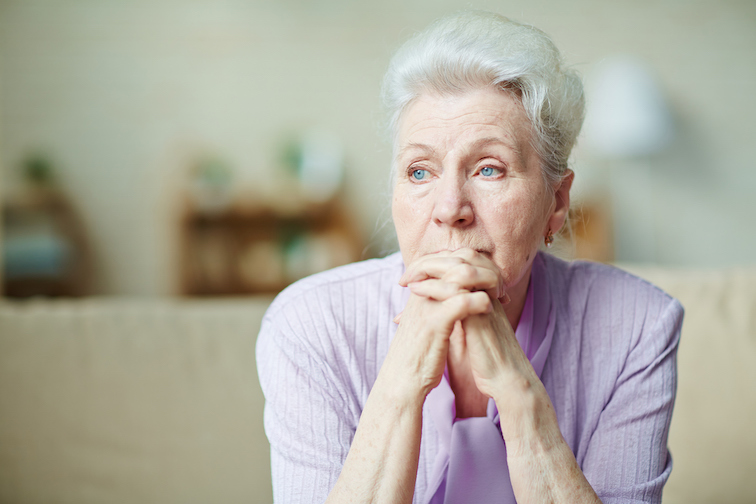
Elderly socialization improves health and wellness in older adults.
Senior isolation is a growing and very dangerous epidemic across the nation. Nearly 33% of all older adults live alone, and for a number of reasons (limited mobility, chronic health concerns, and loss of friends and relatives, just to name a few) elderly socialization ends up being more and more difficult to maintain.
The truth is, isolation in the elderly has been shown to be as hazardous to their health as smoking 15 cigarettes every day, with an elevated risk for heart-related illnesses, stroke, and even premature death, as indicated by a study conducted by the National Institute for Health Care Management.
It’s also important to understand the key differences between isolation and loneliness. According to the late John T. Cacioppo, Ph.D., former director for the Center for Cognitive and Social Neuroscience at the University of Chicago, social isolation is “the objective physical separation from other people (living alone),” while loneliness is “the subjective distressed feeling of being alone or separated.” This means an older adult can feel lonely even when in the midst of friends and family, whereas another may spend a lot of the time alone, but not feel lonely.
Both loneliness and social isolation are risk factors for health problems, and intervention to increase socialization is essential. The good news is the fact that senior loved ones whose lives are more social reap an array of health benefits, most notably in the areas of:
- Cognition: The companionship of other individuals provides the means for a release of anxiety and enhanced mental health, which are shown to favorably impact memory and help prevent cognitive decline.
- Emotional Health: The potential risk of depression, anxiety, and low self-esteem is reduced for people who are socially involved, offering a feeling of belonging and better handling of mental health concerns.
- Physical Health: Exercise is essential to optimizing physical health in aging parents, and those who maintain social bonds are more inclined to stay physically active and engaged.
In addition to that, social seniors have even demonstrated experiencing a lengthier lifespan than others who are more isolated.
At Morning Glory Home Care, we are assisting older adults throughout Edwardsville to conquer loneliness and isolation by providing highly-qualified, experienced, friendly, and compassionate caregivers who offer much-needed companionship through:
- Conversations and reminiscing
- Exercise programs
- Arts/crafts as well as other enjoyable hobbies and interests
- Transportation to fun outings in the neighborhood
- Sharing mealtimes together
- And much more
Help an older adult you love discover a more socially-enriched lifestyle! Contact us at 618-667-8400 for a no-cost in-home consultation and to find out more about our top-rated home health care in O’Fallon, IL and nearby areas.
